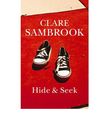Then they bring on a representative of said family and friends to spell it
out for me, to mumble through the cliches of loss just in case I haven't got the message. Hey, I want to tell the programme editor, I'm a grown up. I've been to that place where you can't understand how the world keeps turning without that person in it but, even if I hadn't, I think I'd understand that if you lose a loved one you feel sad. My heart hardens for every talking head that tells me how wonderful the deceased was. I think of all the senseless deaths from war and poverty and corruption that don't make it onto my TV.
Don't try to dictate what I should feel!
there’s the story which isn’t actually saying anything terribly subtle or interesting about death and what it does to those left behind. I’ve read lots of stories which amount to saying, "Death makes people sad" Emma Darwin
luggage and a night in a prison cell. A lot of people can appreciate a really good cup of coffee: it doesn't have to be the big drama every time.
What do I think does make for an emotionally satisfying read?

One option is to tell the story from the point of view
of a naive narrator: because she's never experienced a different kind of life, Cathy doesn't recognise the tragedy of her predicament, freeing the up the reader to feel the full impact on her behalf ...

… or from the perspective of a baffled child who inevitably won't have access to the whole picture, but the adult reader will feel the full poignancy of the impact of the tragedy on both him and his parents.


Or keeping us hoping for a favourable outcome against the odds – whoever heard of a hostage situation where they all lived happily ever after? – as if the reader were living it with them day by day. I've read this a couple of times and I still don't know how she does it, but I feel like King Canute trying to hold back the tide.


only happened to bad people, we're less likely to feel manipulated as a reader if we find a less sympathetic character tugging at our heartstrings. So Eva
Khatchadourian, so David Lurie: they feel like real people, rather than symbols for a particular emotion, stumbling through life in a not particularly admirable way. They're
also caught up in something much bigger than themselves, so that what we feel is not just for them as individuals, but for the whole situation, in Lurie's case the pain of a country picking up the pieces after the damage wrought by apartheid.
What do you think?





















 RSS Feed
RSS Feed





















